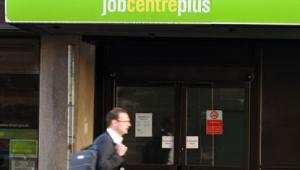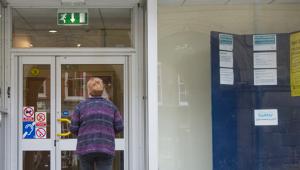By Nick Mann | 18 January 2012
The number of people out of work is now at its highest since 1994, according to figures published today by the Office for National Statistics.
A total of 2.68 million people were unemployed at the end of the November last year, equivalent to 8.4% of the economically active population. The number of jobless rose by 118,000 over the three months to November, a 0.3% increase from the previous quarter. This means the unemployment rate is now at its highest point since 1995.
Youth unemployment also continued to rise, increasing by 52,000 over the quarter to reach 1.04 million. This remains the highest since comparable records began in 1992, although the ONS notes that earlier data calculated on a different basis suggests the rate was higher in the mid-1980s.
A record high was also reached for female unemployment, with the 1.13 million out of work – a 59,000 increase on the previous quarter – the highest since 1989.
Employment minister Chris Grayling attributed the increase in unemployment to more people seeking work. The number of people classed as ‘economically inactive’ had fallen by 61,000 on the previous quarter to 9.29 million.
‘The overall level of unemployment is, and will remain, a major concern for the government. The latest figures reflect the current challenging economic climate but also show more women entering the workforce and more students looking to supplement their income through work.’
He added: ‘Despite the exceptionally difficult economic circumstances, finding work for the unemployed will remain top of the government’s agenda.’
The ONS figures again show a shortfall between public sector job losses and private sector job creation, with 67,000 public sector jobs lost between July and September 2011 and only 5,000 created in the private sector.
Trades Union Congress general secretary Brendan Barber said today’s figures raised the prospect of mass joblessness becoming a ‘permanent scar’ on the UK.
‘We are in the midst of a full-blown jobs crisis that is causing misery for millions and ruining any chance of an economic recovery. Ministers must start putting forward bold solutions to address this crisis, starting with a job guarantee for any young person out of work for six months,’ he said.
The Institute for Public Policy Research called for the ‘Youth Contract’ announced by Deputy Prime Minister Nick Clegg inNovember to be extended to all people out of work for more than a year.
Kayte Lawton, a senior fellow at the think-tank, said: ‘Being out of work for more than a year can have a scarring effect, making it harder to get a job as well as having a negative impact on one’s health and wellbeing.’
She added: ‘The government should guarantee everyone who has been unemployed for more than a year a job at the minimum wage in local government or the voluntary sector. But with that right should come the responsibility to take that job or risk losing their benefits.’
The Work Foundation said the 18,000 increase in jobs created over the three months to the end of November showed ‘tentative signs’ that the economy was stabilising towards the end of 2011.
But the think-tank’s senior economist, Charles Levy, acknowledged this would be of ‘little comfort’ to those facing what he said was the ‘toughest labour market since the start of the recession’.
‘This picture will only improve if we return to strong quarter-on-quarter employment growth,’ Levy added.






















